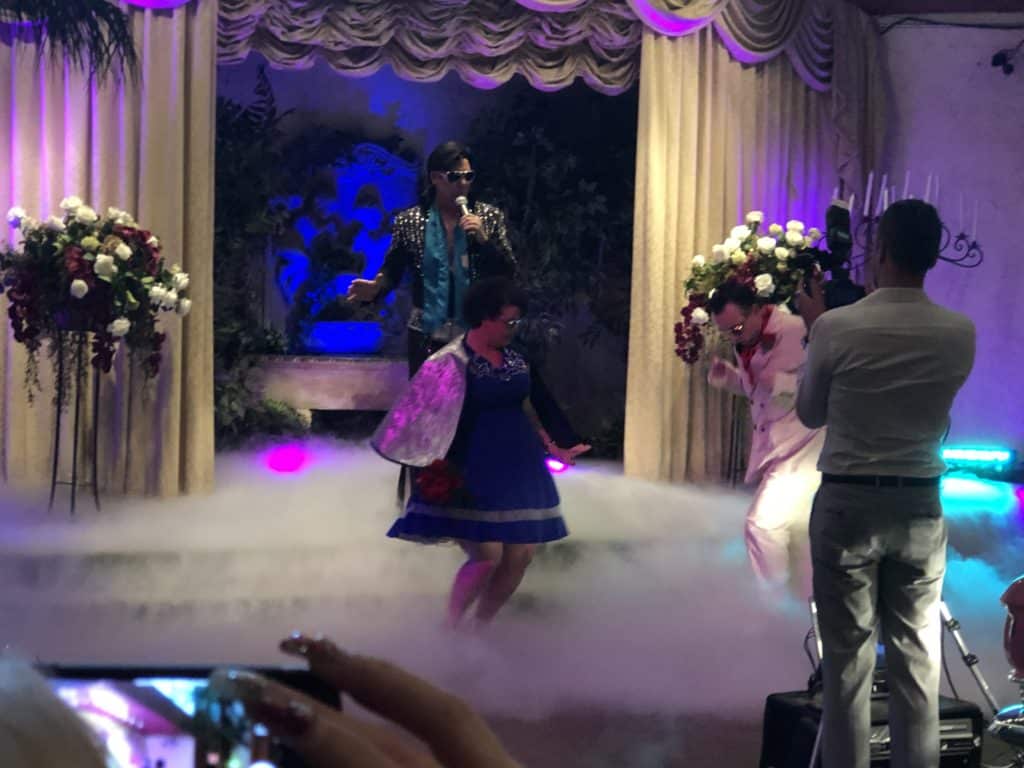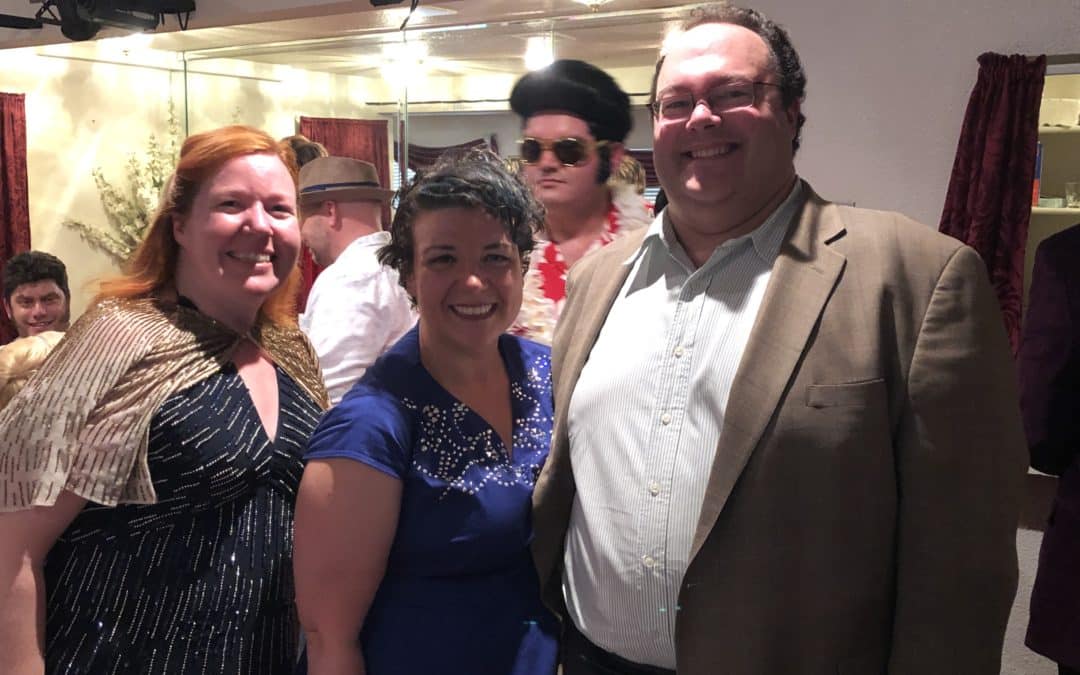The company that holds all of Elvis Presley’s merchandising rights, Authentic Brands Group (ABG), is telling everyone in Las Vegas they can’t use his name. “This couldn’t hit at a worse time. It’s not a good thing,” Clark County Clerk Lynn Goya told the Las Vegas Review-Journal. “It might destroy a portion of our wedding industry. A number of people might lose their livelihood.”
On May 19, 2022, ABG sent cease-and-desist letters to multiple Las Vegas wedding chapels ordering them to stop using “Elvis Presley’s name, likeness, voice image, and other elements of Elvis Presley’s persona in advertisements, merchandise, and otherwise.” If they did not comply, ABG would seek legal action against any “infringing chapel”. Talk about a bunch of suspicious minds! (We’re not beyond dad jokes here.)
This legal battle revolves around name, image, and likeness rights, rights of privacy, and rights of publicity. In the United States, these laws are governed by the states.
For example, in New York these laws are written by statute, and a deceased person has no rights in name, image, or likeness. In New Jersey this is judge-made law from cases. Judges in New Jersey have ruled that the deceased still retain some particular right to name, image, and likeness. Meanwhile in California these laws are also statute driven, but if an individual has a certain amount of fame they can register their name, image, and likeness rights to survive after death. In Tennessee, where Elvis actually lived, all the name, image, likeness rights revolve around Presley, the state’s most famous export (…except for maybe Dolly Parton).
This means that any enforcement of rights only based upon the name, image, likeness of Elvis Presley will be different from state to state.
(Fun fact, the first person in Australia to file for name, image, and likeness rights was Paul Hogan, Crocodile Dundee himself. Learn more about that in Episode 26 of the podcast, in which Ed Heerey Helps Compare U.S. and Australian Rights of Privacy and Publicity Law and Issues.)
To further complicate the matter, there are also federal rights at play; namely, rights of federally registered trademarks.
Elvis Presley, as a name, is registered as a trademark and used on many goods and services. The oldest trademark was filed in 1956 for printed matter, photos, albums, postcards, paper doll books, coloring books, and coin books. For example, U.S. Registration No. 2831918 is for ELVIS representing goods/services of “Entertainment services, namely, live musical concerts, theatre productions, production of television, movies, and music videos, providing a website featuring musical performances, music video, related film clips, photographs and other multi-media materials; conducting online sweepstakes and contests; providing on-line computer games; production of music festival; production of dance or ballet performances; providing pre-recorded music, information in the field of music, and commentary and articles about music, all on-line via a global computer network; providing music publishing services; providing radio programs featuring performances of Elvis Presley; organizing exhibitions for entertainment purposes; conducting live musical performances on-board cruise ships for passengers of all ages.” This covers any performance of Presley’s songs, especially if the performer is imitating Presley.
When all these trademarks are bundled together, ABG has a lot of strength. So, do these small, independent chapels have any defense?
Yes! There is legal theory known as laches, which effectively means “where have you been, Mr. Plaintiff?”. In other words, the defendant has been engaging in this behavior for some period of time, and the plaintiff never saw it as an issue. The defense of laches requires finding that there was unreasonable delay in asserting right or claim, the delay was inexcusable, and undue prejudice resulted from delay. In calculating laches, delay is measured from time trademark owner knew, or in exercise of reasonable diligence, should have known, of the infringement.
If any of these businesses end up as a defendant, one of their big defenses would be laches, and they could ask “if you’ve condoned this for so long, why are you now you deciding it’s an issue?”

There is no set time for how long a plaintiff’s delay would allow a defense of laches to be proper. On the trademark side, timeframes of 5 years of coexistence between the parties tends to be a defense that works in the Trademark Trial and Appeal Board, but the various Circuits of the United States Courts of Appeals tend to disagree about time, and some look at state rulings, also.
ABG may have sent cease-and-desist letters in good faith, trying to enforce the rights that are granted to them, but one has to wonder if the lack of action and enforcement in the past will hurt ABG’s attempt to enforce its rights.
Do you have question about your intellectual property rights? Verna Law, P.C. focuses on patent, trademark, copyright, and advertising law. Call us at 914-908-6757 or send us an e-mail at anthony@vernalaw.com


Trackbacks/Pingbacks